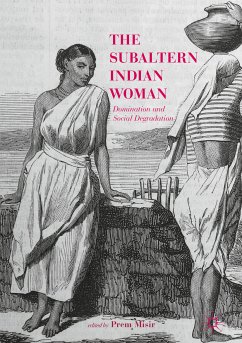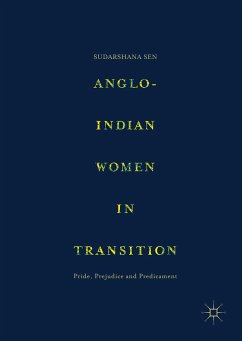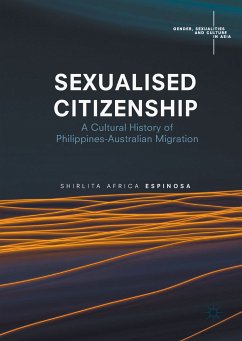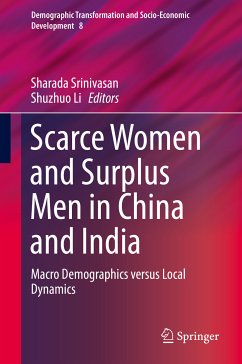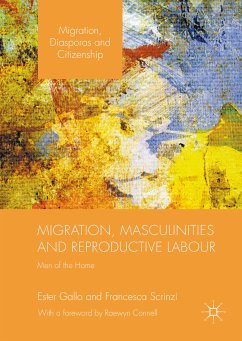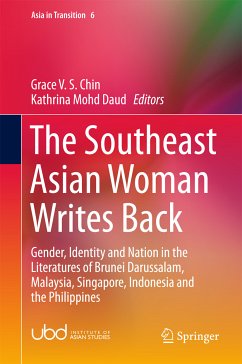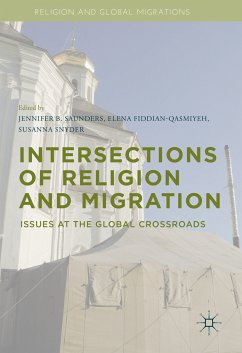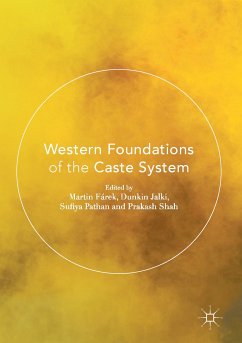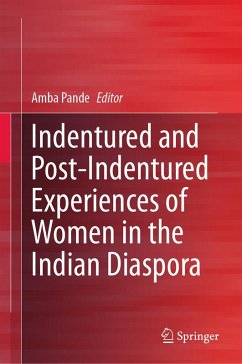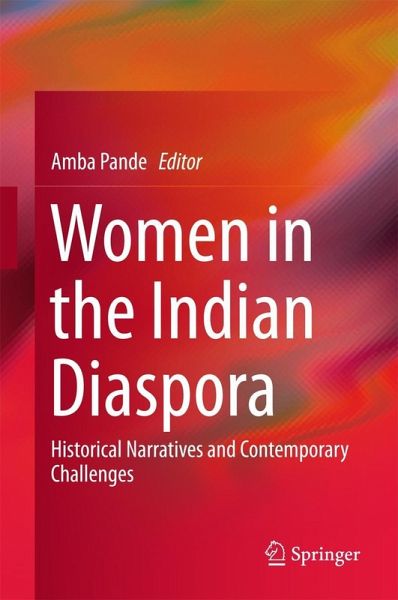
Women in the Indian Diaspora (eBook, PDF)
Historical Narratives and Contemporary Challenges
Redaktion: Pande, Amba
Versandkostenfrei!
Sofort per Download lieferbar
64,95 €
inkl. MwSt.
Weitere Ausgaben:

PAYBACK Punkte
32 °P sammeln!
This volume brings into focus a range of emergent issues related to women in the Indian diaspora. The conditions propelling women's migration and their experiences during the process of migration and settlement have always been different and very specific to them. Standing 'in-between' the two worlds of origin and adoption, women tend to experience dialectic tensions between freedom and subjugation, but they often use this space to assert independence, and to redefine their roles and perceptions of self. The central idea in this volume is to understand women's agency in addressing and redressi...
This volume brings into focus a range of emergent issues related to women in the Indian diaspora. The conditions propelling women's migration and their experiences during the process of migration and settlement have always been different and very specific to them. Standing 'in-between' the two worlds of origin and adoption, women tend to experience dialectic tensions between freedom and subjugation, but they often use this space to assert independence, and to redefine their roles and perceptions of self. The central idea in this volume is to understand women's agency in addressing and redressing the complex issues faced by them; in restructuring the cultural formats of patriarchy and gender relations; managing the emerging conflicts over what is to be transmitted to the following generations,; renegotiating their domestic roles and embracing new professional and educational successes; and adjusting to the institutional structures of the hoststate. The essays included in the volume discuss women in the Indian diaspora from multidisciplinary perspectives involving social, economic, cultural, and political aspects. Such an effort privileges diasporic women's experiences and perspectives in the academia and among policy makers.
Dieser Download kann aus rechtlichen Gründen nur mit Rechnungsadresse in A, B, BG, CY, CZ, D, DK, EW, E, FIN, F, GR, HR, H, IRL, I, LT, L, LR, M, NL, PL, P, R, S, SLO, SK ausgeliefert werden.



